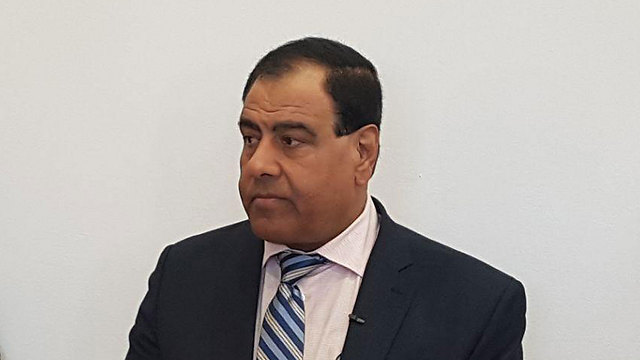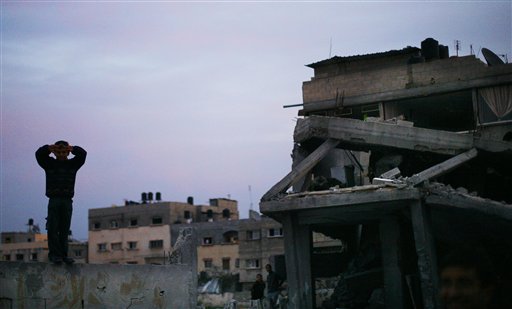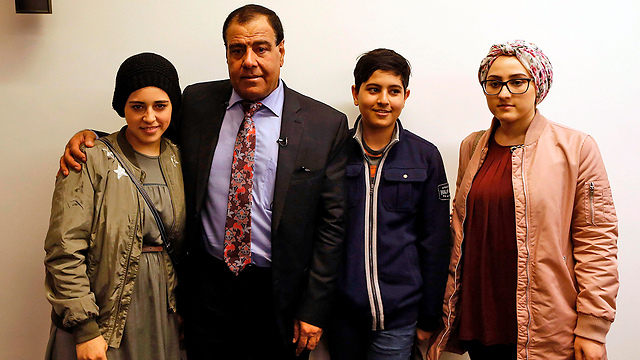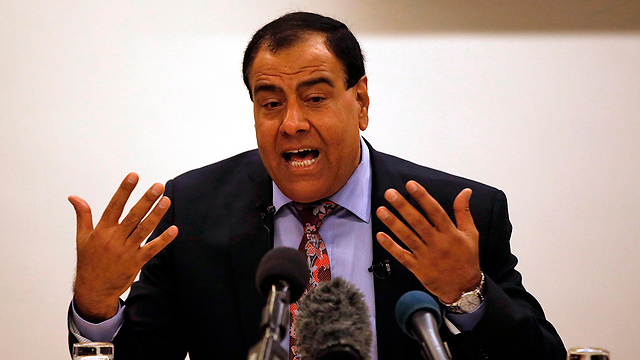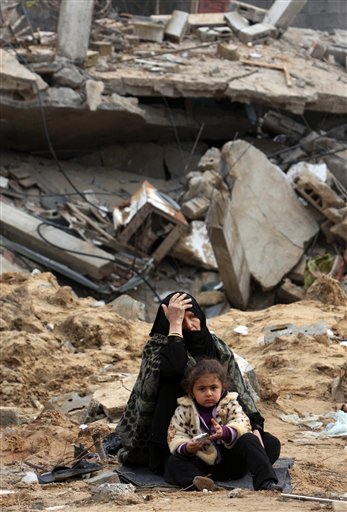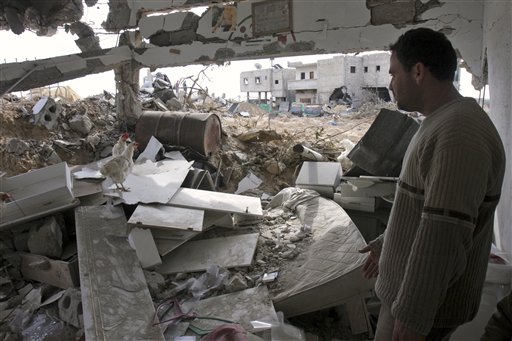
IDF blames Hamas for death of Palestinian doctor's 3 daughters
State's defense claims that 3 of Dr. Izzeldin Abuelaish's daughters who were killed during Operation Cast Lead were caused by explosion of Hamas weapons depots rather than IDF shells.
According to affidavits filed by the Israeli government in the Be'er Sheva District Court, Hamas spotters were identified in the same building as the Abuelaish family. Furthermore, the state is also reiterating the claim that Palestinian weapons depots located in the building were what caused the deaths, rather than IDF artillery fire.
The affidavits were filed Wednesday morning during a hearing on a lawsuit filed by Abuelaish, who is seeking an apology, acceptance of responsibility and financial compensation.
The main argument between the two parties is what ultimately led to the deaths of the three girls; the IDF shells or the weapons cache of a terrorist organization.
Lt. Col. Eran Tuval, commander of the IDF's Materials and Chemical Branch, examined fragments taken from the girls and found chemical components on them which IDF weaponry did not contain. On the other hand, the examination found that the chemicals were used in weapons used by Hamas. As such, he concluded that there was indeed an enemy ammunition dump in the same building.
Judge Shlomo Friedlander addressed Dr. Abuelaish at the beginning of the hearing by expressing his condolences for his loss. "I would like to express our deep grief and shock over the tragedy that befell you and your family," he said. "On this there can be no doubt. The throat burns at such a tragedy and I express my regrets.
"We are gathered here to hold a legal hearing on disputed factual issues. We will hold it without detracting from our participation in the sorrow of the family."
For his part, Abuelaish responded to the judge, expressing his appreciation for his sympathy. "Your words mean a lot to me. I did not want to be in this place. In this situation, my hope is that this hearing will bring justice and lessons. From the moment I saw my dead girls in front of me, I devoted my life to saving life.
"Ground forces attacked and we got stranded inside the house," Abuelaish continued. "Explosions could be heard from all around. I thought that no place here is safer than home. I told myself that at least I'll get to spend time with my kids. I was happy to be with them, despite everything."
The defense then asked him to clarify his version of events.
"So your home was an island of calm, without war, and suddenly a tank appeared and shelled your house—even though its operators knew it was your house—for no reason. Is that your story?" Abuelaish was asked.
"My story? A story suggests that it is a figment of someone's imagination. It's my reality. It's my tragedy," the doctor responded, adding "there was no reason for my girls to die, they did nothing. We were not involved in any activity that can justify the shelling of my home. There was no shooting, there wasn’t anything."
The doctor went on to say that "At the time no one in Gaza was safe. We need to ask why they shot at my house. The people in my building were not involved in any violent act."
Judge Friedlander then directly addressed Abuelaish, asking him if he believes that the commanding officer is a murderer, one who ordered the shooting on a whim.
However, the doctor declined to answer him directly, pointing out instead that the whole area was a war zone, and consequently blamed fear as the possible key factor in the officer's decision.
Abuelaish then added that the strike was a total surprise, saying "at first I couldn’t believe it, but when I saw the destruction at the house I walked into my daughters' room and…I don't want anyone in the world to see something such as that."
One of Abuelaish's daughters, Shada, then took the the witness box, and was asked whether she saw any Hamas operatives, to which she said no. "I only saw the Israeli soldiers. I saw them near our house."
When asked how she recognized them as Israeli soldiers, she pointed to their uniforms but also admitted that she "knows that sometimes Hamas soldiers wear IDF uniforms."
The affidavits filed by the government included testimonies and documents by Colonel D., the commander who was in charge during the incident. Lt. Col. Tuval. Col. D. claimed that the IDF encountered fierce resistance during the battle in Gaza for several days.
On the day of the incident, after an IDF unit took control of a junction in the area, a Palestinian force opened fire on it.
"The unit spotted scouts that aim the enemies' snipers at the building in which Abuelaish's family resided. After 20 minutes, during which the unit made sure of their position, while under enemy fire, an order was given by the battalion's commanding officer to fire at them," claimed the colonel in his testimony
"Two shells were fired at the scouting unit, and the building was hit. Thick black smoke then rose from the building, which does something that should be produced by the shells," he emphasized as he recalled the tense scenes.
The colonel noted that the IDF unit acted with "covert means to directly and selectively hit only the enemy combatants, while minimizing use of armaments."
Furthermore, he said that the IDF units took great risks to avoid civilian casualties, which even included operating in the area with their weapons "on safety."
"Several minutes after the shelling, IDF forces reported children's cries coming from the building, and then a report was given of civilians exiting the structure," said the colonel. Only then did it become apparent that the strike had resulted in a civilan tragedy, and ambulances were consequently called to evacuate any casualties.
Abuelaish said that the tears he sheds for his daughters are "tears of pain and hope. This tragedy was the reason for the ceasefire. I taught my children to only give life, and to always help others; not with bullets or shells but with wisdom, education and words. I hope that we will all adopt this message and teach it to everyone."
(Translated & edited by: Fred Goldberg and Lior Mor)










